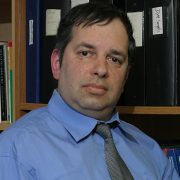L. Ron Hubbard Predicted the Kindle–Nearly 25 Years Before Its Invention
In Battlefield Earth, which was first published in 1982, the evil Psychlo Terl gives the book’s hero, Jonnie Goodboy Tyler, a “learning machine.”
The user places disks on various subjects onto a rod on top of the machine–similar to putting a CD in a boom box–and listens to the text as audio combined with images on a screen. While the first commercial CDs would be released the same year Battlefield Earth was published, it would be another 13 years before video CDs and later DVDs would be broadly available for consumer use.
Jonnie uses the machine to learn the alien’s language as well as Psychlo mining techniques–a pivotal event in the story’s plot. With this knowledge, Terl can communicate with Jonnie and force the captive human to mine gold. Gold that Terl plans to steal from the Psychlo mining company as part of an overall scheme to get off Earth and return to his home planet.
Soon after the book’s release in 1983, a newspaper reporter from the Denver Rocky Mountain News asked Mr. Hubbard whether he thought paperbound books would become obsolete.
He replied, “Books will change. You will be able to carry your own pocket computer library.”
In effect, Mr. Hubbard predicted the invention of the Kindle e-book reader, which was introduced in 2007, around a quarter of a century before Amazon released it. This fascinating 20-page interview with the author has been republished and is now available in the 21st Century trade paperback edition of Battlefield Earth.
But L. Ron Hubbard was not the first to postulate that paperbound books would be replaced by reading machines.
In his 1899 story When the Sleeper Wakes, H.G. Wells imagined the Babble Machine. The user connected his Babble Machine to the electronic content of a central news syndicate via a cable. He then pulled a lever and the news was read aloud to him by the machine–making paper newspapers obsolete.
In his 1961 novel Return from the Stars, Stanislaw Lem predicted digital books, only he called his device the “opton.”
The books were crystals with recorded content. By placing a crystal in an opton, you could read the book on the device’s screen–one page at a time.
Then there was Thomas Edison, who in 1877 invented a phonograph that played cylinders with recorded audio. Soon after introducing his cylinder phonograph, Edison said in newspaper interviews that the cylinders would soon make traditional paper textbooks obsolete.
Well, it didn’t happen in his lifetime. But it is happening now, in a fashion.
Today, if you look around college campuses there are still college bookstores and paper textbooks.
However, an increasing number of textbooks–especially for students majoring in computer science, engineering, and other technical subjects–are read by the students online with their laptops. And of course, you can also read many textbooks on your Kindle.
Isaac Asimov had a different take when he predicted a “reading machine.”
He noted that some publishers were putting content on both audio and video cassettes, but that there were several problems with the technology:
The machines were bulky and could be complex to operate. They required either an electric outlet or, for portability, batteries; and the latter of course run out.
He then said there was already a portable reading device that solves all these problems: it was lightweight, easy to carry, simple to use, and required no power source: a book!
L. Ron Hubbard believed predicting future science and technology, and encouraging scientists to create that future, was an essential role of science fiction.
In his Introduction for Battlefield Earth, he wrote “Science fiction does not come after the fact of a scientific discovery of development. It is the herald of possibility. It is the plea that someone should work on the future.
“It is the dream that precedes the dawn when the inventor goes to his lab saying, ‘I wonder whether I could make that dream come true in the world of real science.’”
In the prediction of a machine replacing the traditional paperbound book, Hubbard and the other SF authors cited here were right on the money–and the Kindle e-book reader is the proof.
Bob Bly holds a BS in chemical engineering and has been a full-time freelance writer since 1982. His more than 85 books include The Ultimate Unauthorized Star Trek Quiz Book (HarperCollins), The Science in Science Fiction (BenBella), and a collection of science fiction short stories Freak Show of the Gods and Other Tales of the Bizarre (Quill Driver Books). Bob has written over 100 articles for publications including Cosmopolitan, City Paper, Writer’s Digest, The Record, and Target Marketing. His SF web site is www.sciencefictionprediction.com
Other articles and resources you may be interested in:



Stanislaw Lem did this in 1962…
Thanks. How did he predict the Kindle?